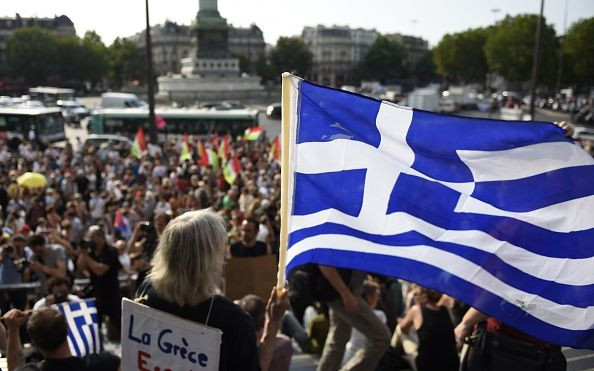Greek Debt Crisis: How Will Global Financial Markets React To The Referendum?

The ongoing drama over Greek debt talks has reliably afforded a new nail-biting showdown or deadline every couple weeks. This time around, investors are awaiting a Greek referendum scheduled for Sunday over the demands currently put forward by the troika, the trio of international bodies negotiating Greek debt provisions.
With a “yes” vote from the Greek populace, Prime Minister Alexis Tsipras of the leftist Syriza ruling party says he will resign, making way for agreements with European finance chiefs that could sooth turbulent European bond markets. With a “no” vote, however, the crisis could deepen -- or come to breaking point.
“There are a lot more risks than opportunities,” says Clem Miller, portfolio manager for Wilmington Trust, with $78 billion of assets under management. Miller predicts a “yes” vote. But he’s only giving it 60-40 odds.
If the crisis drags on, investors worry, several dire scenarios could play out. On the extreme end of the spectrum, there’s the possibility that Greece could default on its billions in bailout debt and break free from the euro. This is the dreaded Grexit.
Although Greece makes up less than 2 percent of the eurozone's economy, it could cause immediate dislocation elsewhere. Other weakened economies, including Italy, Portugal and Spain, could see bond selloffs and steeper borrowing rates. Moreover, the entire eurozone project would be thrown into question. The unprecedented exit of a member state from the currency union would likely make investors wary of the euro, fearing that other states could follow Greece's lead.
But despite the considerable national impacts -- Standard & Poor’s estimates that a Grexit would mean a 20 percent hit on Greek economic output -- many investors doubt the event would have a major effect on global markets. More than half of those surveyed by Barclays in June felt that European safety valves would keep the effects of a Grexit to a minimum.
But Miller doesn’t think the so-called firewall set up by European finance authorities to limit Greek fallout is fool-proof. “Nobody knows if these will actually hold and prevent contagion,” Miller says.
In part, that’s because the eurozone’s finance ministers make decisions by consensus, an agonizingly plodding endeavor in the context of whirling global markets. “Markets could bet against them and markets could win," Miller says, "because markets can act faster."
Polls show a slight majority of Greeks currently siding with the “no” campaign, rejecting demands of fiscal austerity attached to further capital access from the troika, which consists of the EU finance ministers, the European Central Bank and the International Monetary Fund. But a majority of Greeks also wish to stay in the eurozone.
Meanwhile, representatives from the eurozone’s three largest economies -- Germany, France and Italy -- have made clear that a “no” vote would signal a rupture and likely grexit. French president Françoise Hollande said: “It’s the Greek people’s right to say what they want their future to be. It’s about whether the Greeks want to stay in the eurozone or take the risk of leaving.”
But if the referendum turns out to be another false ending, markets could simply resume their pattern of the past several months: surging up on any hint of resolution and selling off on uncertainty and broken promises. Bouts of volatility have generally dragged down not just European equities and bonds, but Asian markets as well, as investors flee toward safer assets. U.S. treasuries and stocks would likely rise in any bleak scenario.
Regardless of how the dust settles in the next few days, the real test of the Greek crisis lies ahead. Eventually, Greece and its creditors will have to discuss restructuring its $271 billion debt, which eurozone leaders have kept off the table so far.
“This is not likely to end in the next few weeks,” Miller says.
© Copyright IBTimes 2024. All rights reserved.





















